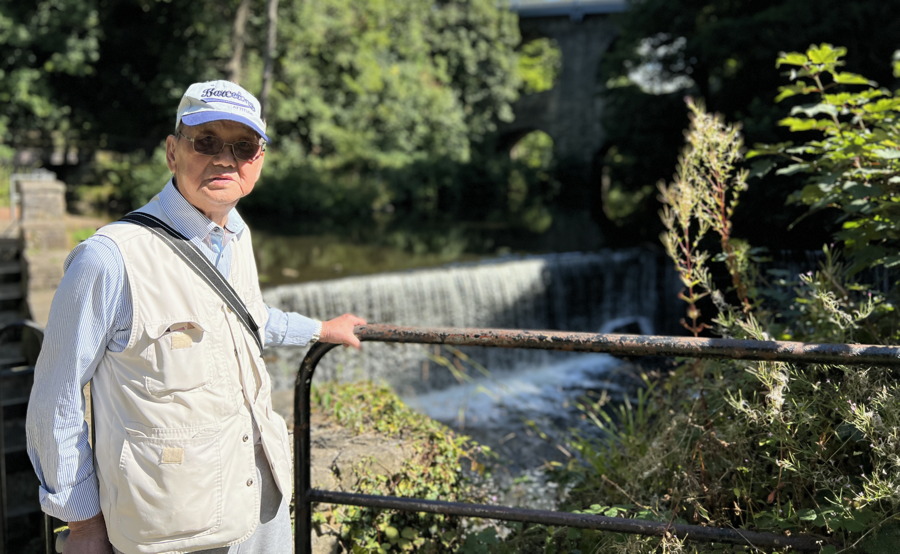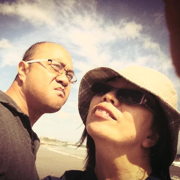This is for National Grief Awareness Week in the UK, December 2nd to 8th 2022.
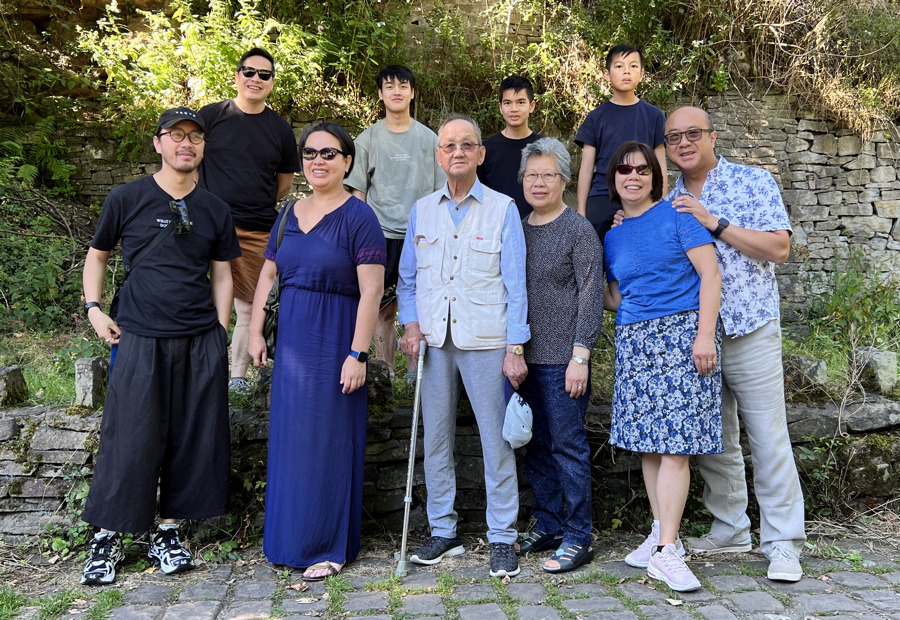
If an author set out to write a story of family tragedy they would have approached the end of this story and thought, nope, that’s just way too much. The readers wouldn’t believe it. This is a story of great sadness but also an insight into the positives, the support that people can receive and also give.
It all starts from my mother’s family that is made us of seven sisters and three brothers. This is a large family in today’s numbers, that come from a small island off Hong Kong and close to the China border.
From the early 1960s, all but one sister has made the UK their home, in particular finally settling in the North East of England and Scotland as their permanent homes. Their early history in the UK involved places like Liverpool, Manchester, Birmingham, Aberdeen, Dundee and the likes of Elgin right at the top of Scotland. That history is for the second generation to find more about.
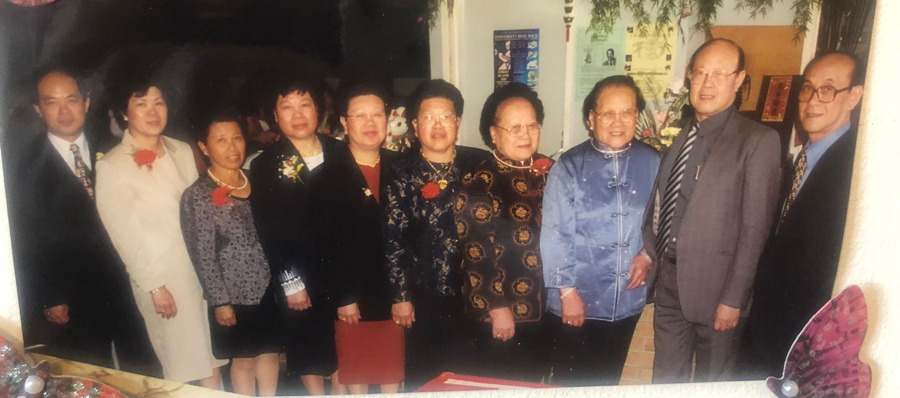
With so many first-generation siblings within an hour or two’s distance of each other, there grew a huge number of children and grandchildren. A huge collection of cousins that got to know each other fairly well because Chinese weddings are well attended and supported by each others families. A large part of that was also through their local church too.
This first-generation have all been grown to a good age in the main. Even the eldest aunt outlived two of her sons, sadly. One Uncle did pass away in his 60s but the rest of the family continued with relatively good health considering their age.
2022 was different, however. My dad reached 85 in the summer and although having been taken to hospital by ambulance a couple of times over the past two years, he was able to come with us on a break in Manchester and surprised us all by being able to make his way down and up long steep steps to visit an old water mill with us. This was also one of the hottest days of the summer. He even pushed my hand aside when I offered help. He was still a proud and determined person even though he was getting frailer.
In my heart of hearts, I was hoping for a couple of more years with my dad and wished the decline would be gradual and without drama. It would give us time to make more lasting memories with each other and with the grandchildren.
It would be a tumultuous month for the family. My dad was taken into hospital on the eve of the Queen’s funeral. At first, they didn’t suspect a stroke as his movement didn’t show the tell-tale signs but it was discovered that there were two massive bleeds in the brain. The prognosis wasn’t good but then he caught pneumonia too and his breathing became very laboured, needing maximum oxygen.
At that stage he was moved from the ward to a side room, and then the realisation set in for the family. We always held out hope, and the first hope was to beat the pneumonia so that he could breathe easier. The family would maintain a 24*7 presence by his bedside with us taking turns.
My brother in America booked a flight. Our second hope was for my dad to see my brother. Thankfully that happened on the Saturday night. My dad could no longer talk but was able to nod and move his right arm a little. My brother was then able to spend a few hours with dad, and now we had all did our turn as a family.
It was noticeable that some patients didn’t get any visitors or only got fleeting visits. Our family were able to be there virtually all day at such a critical time. I am sure the comfort it gave dad helped give him the strength to stay with us until my brother arrived. That video call before the flight let him know he was on his way.
I think the nursing staff were also pleased that as a family we were there to give comfort and support. They so readily see other patients left alone, either with no family or it’s difficult for them to attend regularly.
My dad had been in hospital for a week, and after finding out there had been two massive bleeds, the doctors were talking about moving to palliative care to make his end of life as comfortable as possible.
We knew this was the likely outcome, but we always held out hope. We also did our stints by dad’s bedside knowing that this would be our last duty and our final chance to say everything we wanted to say and needed to say. I can honestly say that it was the first time I said “I love you” to my dad. It’s not a thing Chinese families say, but they show it in different ways. It was the first time that I kissed him, on his forehead, as I told him we would be OK and we will look after mum. 54 years of age, and this was a first for me.
My bedside watch was from 2am and by 8am the nursing staff could tell there was a change, a deterioration. They gave some medication to calm him down and I had to let the family know to come in sooner, rather than later. We had a planned discussion with the doctor anyway about moving forwards, so the whole family were coming in. In my hearts of hearts, I had seen the decline and knew what was going to happen, very soon.
When my mum came into the room she told me her eldest brother, my Uncle in Edinburgh, had just passed away earlier that morning. Wow. I thought this is really going to be a double whammy.
By the time the whole family sat in with the doctor, to acknowledge that we would be moving to palliative care for my dad, there was hardly enough time for us all to digest and get back to his bedside before dad passed away. Maybe for the right reasons, my dad passed away watched over by my brother, who hadn’t been across from America to visit for over a decade.
We had lost our dad, but my mum had lost her eldest brother too, that very same day. That same family had also travelled down from Edinburgh to visit my dad in support the previous day.
There was emotion and there was stillness too, a quietness of resignation. We went home and we slept. Sitting by the bedside watching a loved one struggle with breath, throughout the day, throughout the night and with all the beeping of machines and interruptions of nursing staff is so tiring. There was nothing more we could do now.
Whilst we were taking things in, receiving family visitors, trying to rest, a message pinged our phones close to midnight. It was the eldest aunt, hugely respected and adored by all. She had passed away at age 95, two days after my dad.
My mum was already asleep, so I had to be the one to knock on her door. I didn’t really know how to break it, but I had too. After a brief moment we got changed and were in the car travelling to my aunt’s house. There were between 30 and 40 from the various families there already in support, especially for my cousin who had spent over a decade as a constant carer for her mum.
Three deaths in three days. Three funerals to come.
Whilst I was hoping we would have at least a couple of years more with my dad, it was always in the back of my mind that I would need to say a few words at his funeral service. Growing up as “takeaway children”, with my parents working 6 or even 7 days a week at times, meant that we were not as close as other families. It also meant we grew up staunchly independent and resilient, but that is another story altogether.
My dad’s funeral was arranged for three weeks’ time, so my brother flew back to America and I returned to Bournemouth to catch up on work.
When we returned up to my mum’s house Sunderland, we decided to all visit her next eldest sister, an aunt that I have been the closest with out of all the others. She had bit of a cough for a while, but in good spirits and she’s always laughing and talkative with me and my wife Angela.
It was only a few hours later after we left that there was another message. Aunt had to be rushed to hospital after collapsing. She had stopped breathing and took a while to bring back round, so we knew it was serious. That was on the Friday.
My dad’s funeral was on Monday and there was a large turnout in support, not only of family but also of my friends that known dad. I was pleased I was able to say my words about my dad and to thank the family and their church for their support.
Whilst we were helping to clear up at the church, we were told we should make our way to the hospital where my aunt was. She was in the intensive care unit, in an isolation room. About 30 people from my dad’s funeral made their way to the hospital, all dressed in black.
There was no improvement in aunt’s health, and it was likely they would withdraw the breathing support soon after.
We took turns in going into the ward in pairs, to pay our last respects through the window. What a terribly sad day again. She passed away the next day. That was a shock as there was no signs of severe decline in her health and would quickly end up like that.
That was four deaths in less than four weeks. Four families directly touched by a death.
It didn’t end there.
Whilst we were up, we visited a cousin of ours, the daughter of the youngest of my mum’s sisters. Her 12 year old son had a brain tumour and had declined in the past weeks to become bed bound at home. They knew there was not much time left. We knew there was not much time left, so we were glad to have visited.
Once back in Bournemouth, we heard he too had passed away.
Five siblings on mum’s side had faced a death in their family in the space of a month. The joys of weddings were dotted with the sadness of funerals.
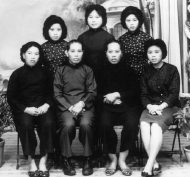
I will give my observations which is the reason for writing this blog.
I have been to family and friends’ funerals before but what has happened is that I just turn up for the funeral service itself. I haven’t been around in that person’s declining health or their last days, to feel and absorb those emotions over days and weeks. What happened instead was that you feel sad travelling to the funeral, dropped into a sad environment, of heavy emotion, there will be many people that haven’t seen each other for a while and the only thing on your minds is the funeral and you leave feeling sad too.
The difference to how I felt for our recent family funerals was that there was a period of time that I had to process the reality of my dad passing away. I was there for his last week. I was there for his last moment. I was there for the lull afterwards. I had gone through the sadness phase in the main, and the funeral itself was like “crossing the T”. To me, it felt like it was something for everyone else. Something necessary and not my aim to demean it.
I’ve already mention that there were seven sisters and three brothers on my mum’s side of the family and that there is a huge network of second and third generation relatives around. Due to where I lived before moving to Sunderland, then going to university in Birmingham and then moving to Bournemouth, it meant that I didn’t hang out with my relatives as much as others did.
We only got really close with one of the families, my favourite aunty and uncle. The rest were always fleeting glimpses and hellos at weddings, and subsequently funerals.
I never appreciated that strength in numbers until this particular month. That immediate reaction to visit each other’s families without hesitation, even amidst their own grief was enlightening. I was just so aware of a phenomenon that many other families might not even experience. It was palpable, it was comforting.
With people around, there would be lots of talking, reminiscing, laughter and teasing too. A nice contrast to the sadness.
I contrast this to those patients that have no visitors. By being at my dad’s bedside, I was able to get the nurse’s attention when he was in discomfort and distress otherwise it would have been on the next round of observations. He once signalled that he couldn’t breathe and needed suctioning. I was relieved that I was there to call a nurse.
One thing that proved helpful and consoling, was to share a Facebook photo album of happy times with dad. It reassured us to see that we did do a lot, travelling to different places, and making lasting memories. It would lessen any guilt we might have felt.
I’ve written a lot. There has been a lot to take in.
A shorter blog piece was written for Dorset Mind.
Useful links:
